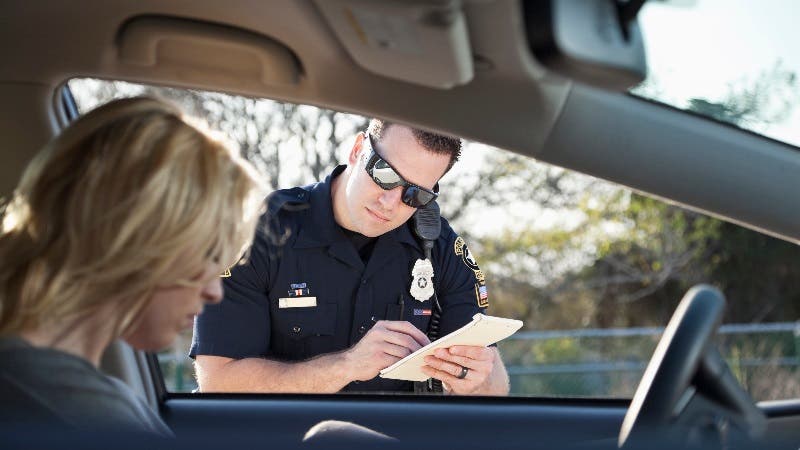How insurance raises the total cost of a DUI

Driving under the influence of alcohol or drugs is one of the single most expensive mistakes you can make on the road. If you’re charged with a DUI, tickets and fines are only the start of your financial challenges — but the total cost of a DUI can add up to tens of thousands of dollars or more. One of the biggest costs associated with a DUI comes in the form of inflated insurance rates, which can add thousands of dollars per year to your living expenses.
How much does car insurance go up after a DUI?
A single DUI charge can cause your car insurance rates to nearly double, with average annual costs increasing to $5,287 for full coverage and $1,645 for minimum coverage, according to November 2025 rate data from Quadrant Information Services.
Insurance companies charge more after a DUI because it’s a serious moving violation that carries a high risk of accidents, injuries, property damage and the claims that come with them. If you didn’t get in a crash while driving under the influence, only your DUI charge will raise the cost of your insurance. But an at-fault accident on your record — especially one that resulted in significant injuries or fatalities — can result in more serious criminal charges on top of causing a bigger hike in your insurance rates or even being dropped altogether.
Keep in mind that not all insurance companies deal with DUIs in the same way. Some insurers, like American Family and Progressive, tend to institute smaller rate hikes for customers with DUIs, while others penalize this offense more severely. Some insurers, like State Farm, may not even write policies for drivers with DUI convictions. The table below compares average rates from a range of carriers for drivers with and without DUI convictions. It’s important to note that the only way to know if your preferred carrier will offer you a policy after a DUI is by requesting a quote.
| Company | Avg. cost of full coverage premium | Avg. full coverage premium after a DUI | Difference |
| Allstate | $3,390 | $5,287 | 56% |
| American Family | $3,106 | $3,885 | 25% |
| Amica | $3,839 | $9,596 | 150% |
| Auto-Owners | $1,921 | $3,873 | 102% |
| Chubb | $3,527 | $7,744 | 120% |
| Erie | $2,269 | $4,153 | 83% |
| Farmers | $3,418 | $7,582 | 122% |
| Geico | $2,200 | $4,681 | 113% |
| Nationwide | $2,040 | $5,008 | 145% |
| Progressive | $2,214 | $3,125 | 41% |
| Travelers | $2,225 | $4,477 | 101% |
| USAA | $2201 | $4,136 | 88% |
Other financial implications of a DUI
The financial consequences of a DUI aren’t just limited to insurance surcharges. There are numerous other expenses associated with receiving a DUI citation, which could add up to thousands of dollars over several years. While actual costs might vary based on state and situation, American Addiction Centers estimate that a DUI could cost between $10,000 to $25,000.
Some potential expenses after a DUI could include:
- Fines
- Posting bond
- Car towing or impound fee
- Attorney costs
- Court and jail fees, including sentencing and probation
- Random drug screenings
- Driving school
- Ignition interlock installation
- License reinstatement fee
- Lost income from court and/or jail time
- Alternate transportation due to license suspension
How a DUI impacts car insurance for real drivers
Reddit user review
Reddit User 1
*The quotes and citations included on this page have been verified by our editorial team and are accurate as of the posting date. Outlinked content may contain views and opinions that do not reflect the views and opinions of Bankrate.
How to lower auto insurance rates after a DUI
On average, you may see your auto insurance rates increase by almost 100 percent after a DUI charge. As you attempt to rebalance your budget, you may want to consider these savings strategies following a DUI:
Research your state’s requirements
Not all states treat DUIs the same, so research your state’s requirements regarding DUI and DWI charges. You may need to look into non-standard auto insurance, as well as which car insurance carriers will submit an SR-22 or FR-44 on your behalf to the DMV.
Shop around
Each insurer measures risk differently. Shopping around and comparing car insurance companies could help you find cheaper auto insurance rates, even after a DUI. Many other factors, like your location, type of vehicle, annual mileage and more could influence your final rate.
Check discount opportunities
If you’ve received a DUI citation, you likely won’t be able to earn a good driver discount for at least a few years. However, that’s not the only car insurance discount available. If you own your home, you could earn a discount by bundling your home and auto insurance with the same carrier. You also might qualify for discounts through certain professional or affiliate groups or by making simple changes to your billing settings, like opting for paperless statements or paying your premium in full.
Practice safe driving habits
Safe drivers typically enjoy some of the lowest car insurance rates. A DUI, however, will almost certainly cause car insurance providers to recategorize you as a high-risk driver. Fortunately, some insurers offer telematics programs as a way to slowly earn back your safe-driver status. By tracking real-time driving habits, these programs can reward you with discounts for smooth braking, steady acceleration, reduced mileage and minimal late-night driving.
Maintain continuous coverage
While you might be tempted to let your car insurance lapse in the face of steep DUI rates, it may not be the right move. Car insurance is mandatory in every state after a DUI — and even if your license is suspended or you get rid of your car, maintaining coverage may be necessary to keep you in compliance with the law. It could also help you avoid the steep rates associated with a lapse in coverage if you plan to get car insurance any time in the future.
gs or alcohol.
Frequently asked questions
Methodology
Bankrate utilizes Quadrant Information Services to analyze November 2025 rates for all ZIP codes and carriers in all 50 states and Washington, D.C. Rates are weighted based on the population density in each geographic region. Quoted rates are based on a single, 40-year-old male and female driver with a clean driving record, good credit and the following full coverage limits:
- $100,000 bodily injury liability per person
- $300,000 bodily injury liability per accident
- $50,000 property damage liability per accident
- $100,000 uninsured motorist bodily injury per person
- $300,000 uninsured motorist bodily injury per accident
- $500 collision deductible
- $500 comprehensive deductible
To determine minimum coverage limits, Bankrate used minimum coverage that meets each state’s requirements. Our base profile drivers own a 2023 Toyota Camry, commute five days a week and drive 12,000 miles annually.
These are sample rates and should only be used for comparative purposes.
Incidents: Rates were calculated by evaluating our base profile with the following incidents applied: clean record (base) and single DUI conviction.
Why we ask for feedback Your feedback helps us improve our content and services. It takes less than a minute to complete.
Your responses are anonymous and will only be used for improving our website.








